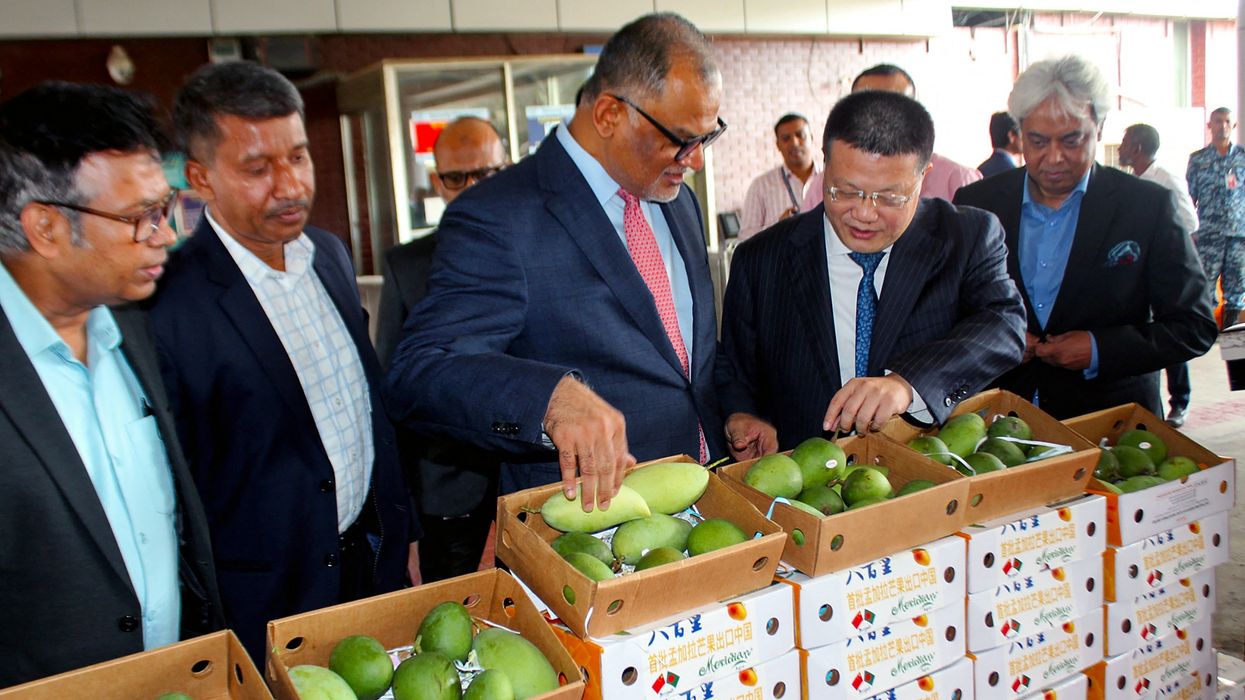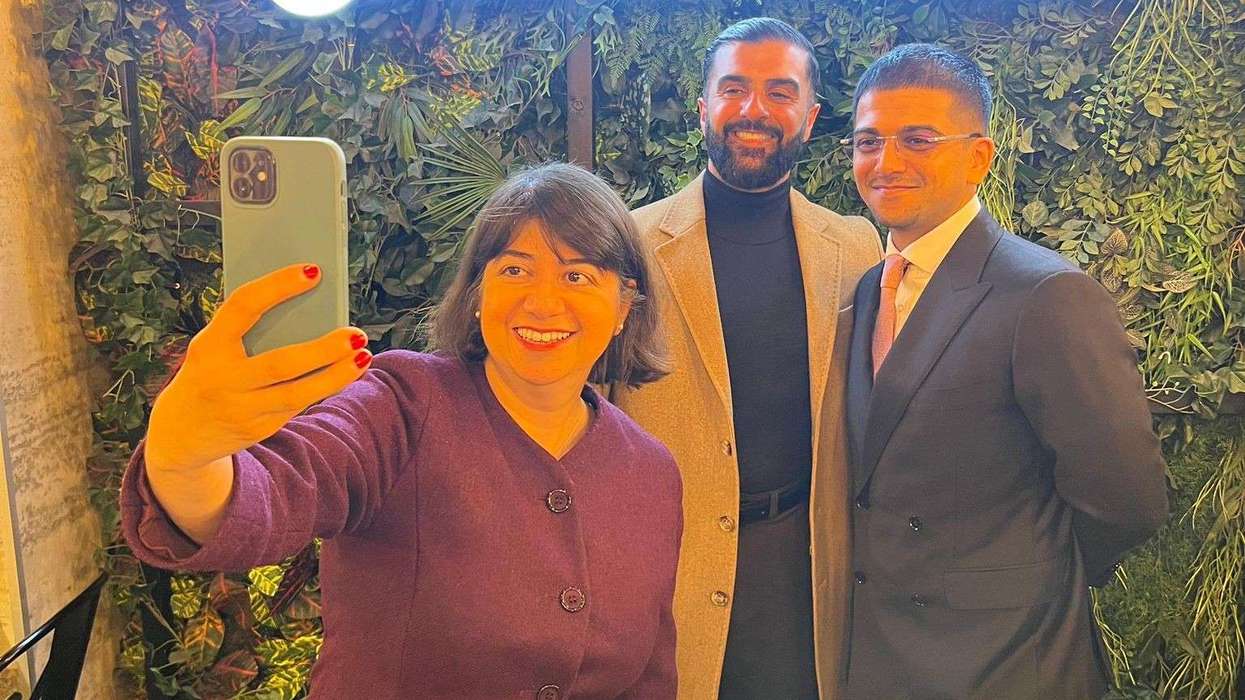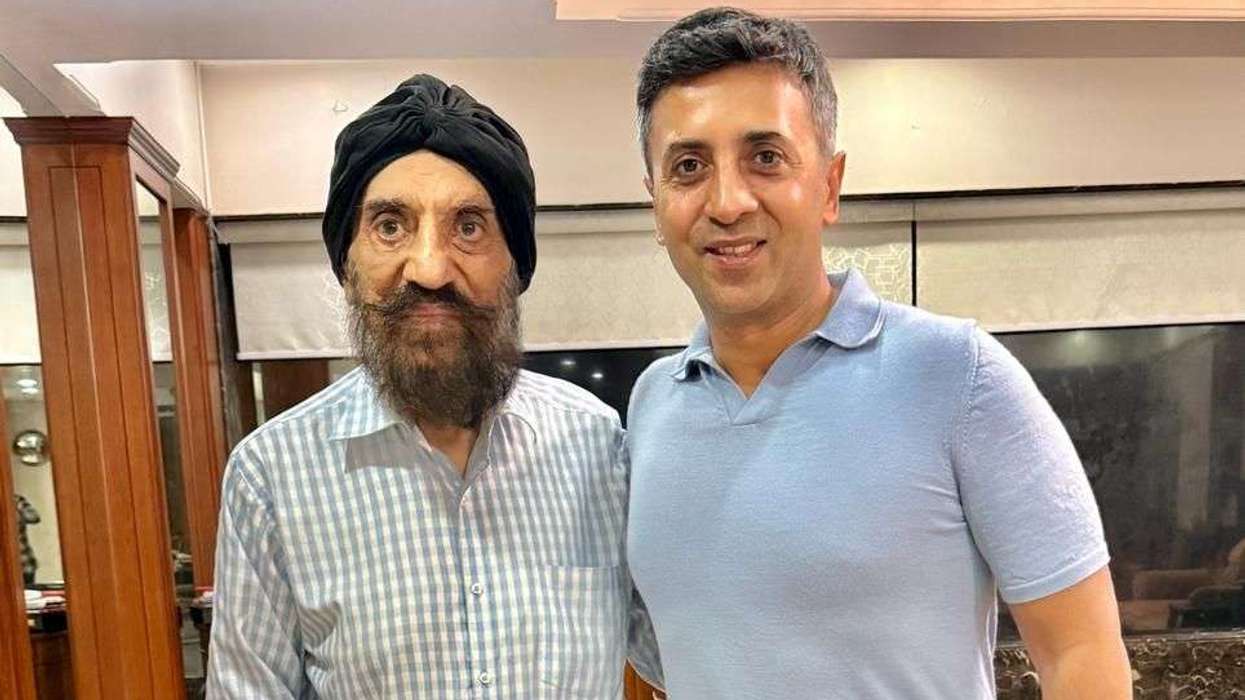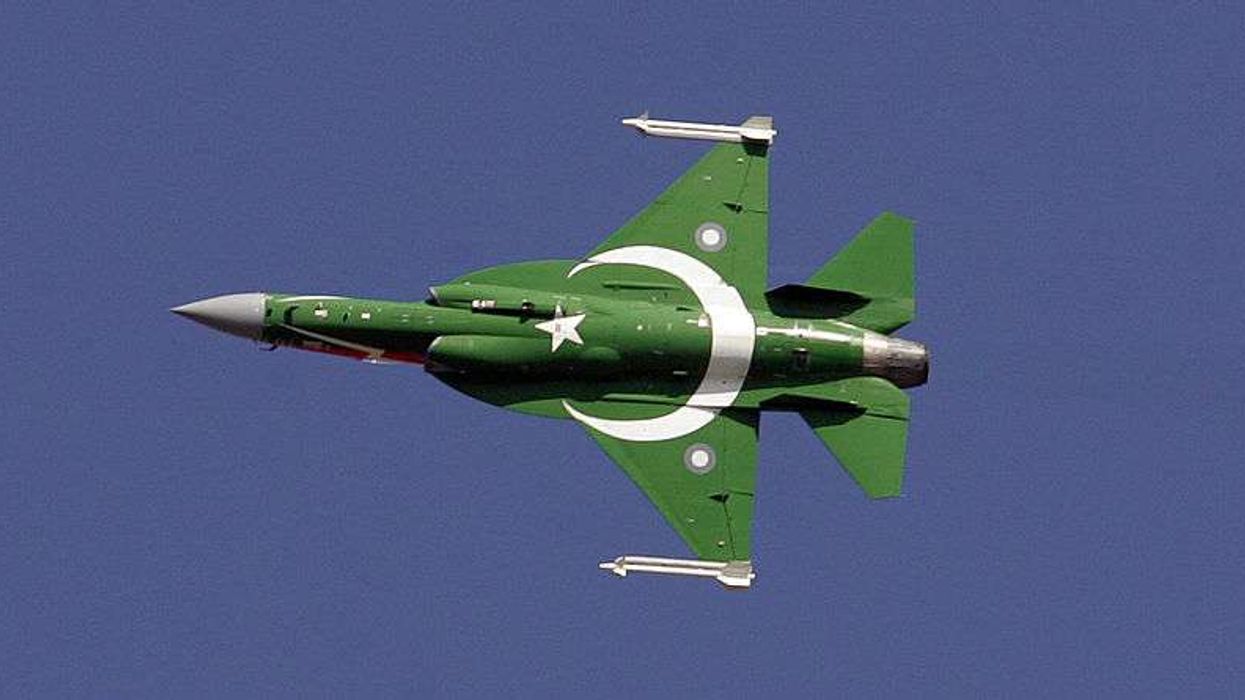BANGLADESH sent off its first shipment of mangoes to China on Wednesday, marking a symbolic export as Beijing seeks closer ties with Dhaka following strained relations between Bangladesh and India.
The move comes after political upheaval earlier in 2024, which ended the rule of Sheikh Hasina, who fled to New Delhi. Since then, Bangladesh has been drawing closer to China, India's regional rival.
“It is such a great pleasure to jointly witness this historic moment, as the first consignment of Bangladesh’s premium mangoes sets off for China,” said China’s ambassador to Bangladesh, Yao Wen, at the airport alongside Bangladeshi government officials.
Relations between Bangladesh and India have cooled, with Bangladesh geographically surrounded by India on most sides. Interim Bangladeshi leader Muhammad Yunus made his first state visit to China, and Dhaka has also strengthened ties with Pakistan.
“President Xi Jinping has emphasised on several occasions that China’s door of opening up will not close, but will only open wider,” Yao said. “I am confident that the export of Bangladeshi mangoes to China is just the beginning.”
In China, mangoes carry historical diplomatic significance. During the Cultural Revolution, Chairman Mao Zedong gifted a mango to a group of workers in 1968, and the fruit became highly revered. Those mangoes were reportedly sent by Pakistan’s foreign minister, at a time when Bangladesh was still part of Pakistan.
The initial export consists of 50 tonnes, though both sides have expressed hope for expanded volumes in the future.
Over the past year, China has organised visits for Bangladeshi political leaders and begun providing medical treatment to Bangladeshi patients in Chinese hospitals.
India, which has historically been cautious of China’s increasing influence in South Asia, continues to compete with Beijing for regional sway, despite some signs of diplomatic easing.
(With inputs from AFP)





